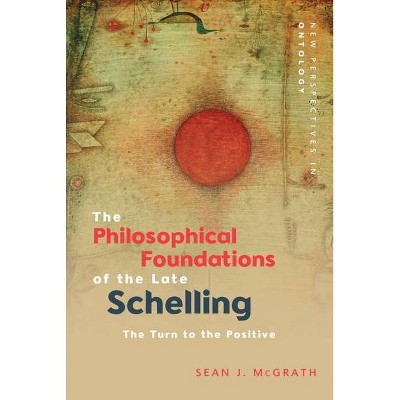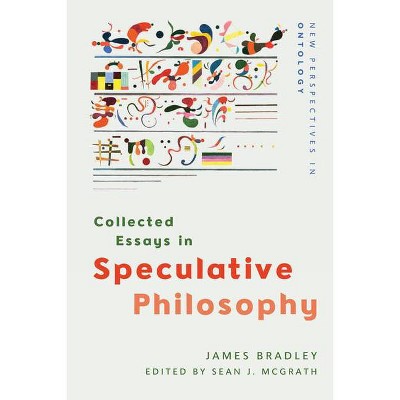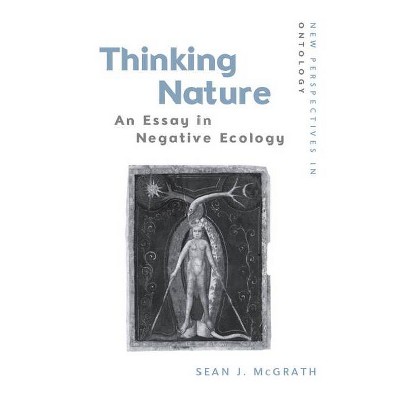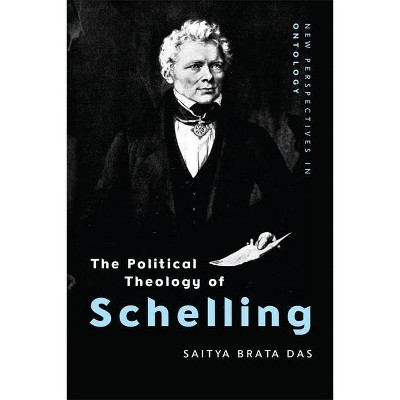The Schelling-Eschenmayer Controversy, 1801 - (New Perspectives in Ontology) by Benjamin Berger & Daniel Whistler (Hardcover)
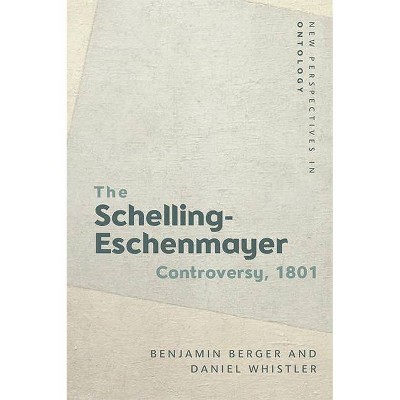
Similar Products
Products of same category from the store
AllProduct info
<p/><br></br><p><b> About the Book </b></p></br></br><p>Berger and Whistler provide a ground-breaking account of Schelling's first controversy with his critic A. C. A. Eschenmayer in 1801, which focused on the philosophy of nature. They argue that key Schellingian concepts, such as identity, potency and abstraction, were first forged in his early debate with Eschenmayer. </p><p/><br></br><p><b> Book Synopsis </b></p></br></br><p>During the first decade of the 19th century, F. W. J. Schelling was involved in 3 distinct controversies with one of his most perceptive and provocative critics, A. K. A. Eschenmayer. The first of these controversies took place in 1801 and focused on the philosophy of nature. Now, Berger and Whistler provide a ground-breaking account of this moment in the history of philosophy. They argue that key Schellingian concepts, such as identity, potency and abstraction, were first forged in his early debate with Eschenmayer. Through a series of translations and commentaries, they show that the 1801 controversy is an essential resource for understanding Schelling's thought, the philosophy of nature and the origins of absolute idealism.</p><p/><br></br><p><b> From the Back Cover </b></p></br></br>A study of the genesis of Schelling's philosophy of nature and absolute idealism, highlighting the importance of A. C. A. Eschenmayer During the first decade of the nineteenth century, F. W. J. Schelling was involved in three distinct controversies with one of his most perceptive and provocative critics, A. C. A. Eschenmayer. The first of these controversies took place in 1801 and focused on the philosophy of nature. Berger and Whistler provide a ground-breaking account of this moment in the history of philosophy. They argue that key Schellingian concepts, such as identity, potency and abstraction, were first forged in his early debate with Eschenmayer. Through a series of translations and commentaries, they show that the 1801 controversy is an essential resource for understanding Schelling's thought, the philosophy of nature and the origins of absolute idealism. Additionally, Berger and Whistler demonstrate how the Schelling-Eschenmayer controversy raises important issues for the philosophy of nature today, including questions about the relation between identity and difference and the possibility of explaining sensible qualities in terms of quantity. This ultimately leads to the formulation of the most basic methodological question for the philosophy of nature: must this philosophy be based upon a prior consideration of consciousness - as Eschenmayer insists - or might it simply begin with nature itself? By arguing for the latter position, Schelling challenges us to entertain the possibility that the philosophy of nature is first philosophy. Benjamin Berger is Visiting Assistant Professor of Philosophy at Haverford College. Daniel Whistler is Reader in Modern European Philosophy at Royal Holloway, University of London.<p/><br></br><p><b> About the Author </b></p></br></br><p>Benjamin Berger is Visiting Assistant Professor of Philosophy at Kent State University. He is editor of a special issue of Pli, on <i>Schelling: Powers of the Idea</i>, 2014. <p>Daniel Whistler is Reader in Modern European Philosophy at Royal Holloway, University of London. He is author and editor of numerous volumes on eighteenth and nineteenth-century philosophy, including <i>The Schelling-Eschenmayer Controversy, 1801: Nature and Identity</i> (EUP, 2020), <i>The Edinburgh Critical History of Nineteenth-Century Christian Theology</i>, <i>The Schelling Reader</i> (Bloomsbury, 2020) and the forthcoming <i>Oxford Handbook of Modern French Philosophy</i> (Oxford University Press, 2022).<p>
Price History
Price Archive shows prices from various stores, lets you see history and find the cheapest. There is no actual sale on the website. For all support, inquiry and suggestion messagescommunication@pricearchive.us




